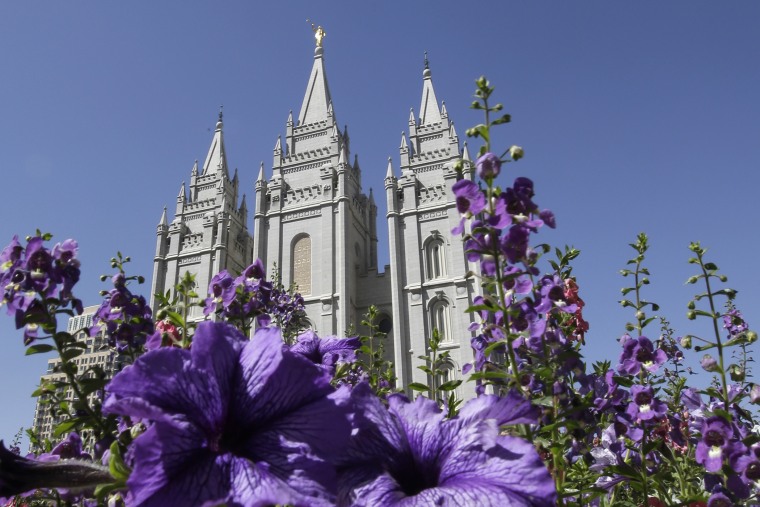In presidential elections, Utah is such a Republican stronghold, it's practically the basis for clichés. The state has backed the GOP candidate in 12 of the past 12 campaign cycles. Over the last half-century, the closest any Democrat has come to winning Utah was in 1992, when Bill Clinton lost by 19 points.
And Clinton finished third in Utah that year, trailing Ross Perot.
But this is an odd year for all sorts of reasons, and Utah suddenly finds itself receiving far more attention than state voters are accustomed to. Polls show Donald Trump leading Hillary Clinton in the state, but by modest margins, and state GOP officials have been quite candid in their warnings that Clinton has a credible chance of winning Utah's six electoral votes.
As The New Republic noted the other day, the unusual circumstances have not escaped the attention of the GOP candidate.
The Republican nominee spoke Thursday in Florida to a right-wing evangelical Christian group, the American Renewal Project, and couldn't help but take a dig at another state and a demographic of voters with whom he's slipping. "You've gotta get your people out to vote. And especially in those states where we're represented," Trump said. "I'm having a tremendous problem in Utah. Utah's a different place. I don't know -- is anybody here from Utah?" [Silence.] "I mean, it's -- I didn't think so."
His rival seems aware of the opportunity. In fact, Trump's "tremendous problem in Utah" comments came a day after Hillary Clinton published an op-ed in Utah's Deseret News, a project of the Church of Latter Day Saints. In it, the Democratic nominee emphasized Mitt Romney's condemnations of Trump, Clinton's record in support of religious freedom, and the parallels between her vision and Mormon traditions.
"Generations of LDS leaders, from Joseph Smith and Brigham Young to Gordon Hinckley and Thomas Monson, have noted the infinite blessings we have received from the Constitution of the United States," Clinton wrote. "The next president will swear an oath to preserve, protect and defend that document for successive generations. And if you give me the honor to serve as your president, I will fight every day to carry out that sacred responsibility."
Yesterday, Trump had an op-ed of his own in the same church newspaper, reinforcing the perception that he's having to focus attention on a state that most Republican presidential candidates feel free to overlook.
The rhetoric was fairly generic -- it's mostly the rhetoric one hears from a typical Trump speech or interview -- which as the Washington Post's Stephen Stromberg explained yesterday, is precisely the problem. "Eight hundred and one words in the Deseret News, Utah's Mormon-owned newspaper, show the difference between a competent, respectful campaign and whatever Donald Trump is running," Stromberg explained.
It's simple: Clinton's piece included carefully worded appeals, references, and phrases intended to resonate with a Mormon audience, while Trump's piece stuck to boilerplate messaging.
"It's still unlikely Clinton will flip Utah," Stromberg concluded. "But just making the state competitive would be a problem for Trump. So will the fact that he doesn't respect his voters enough to do his homework."
